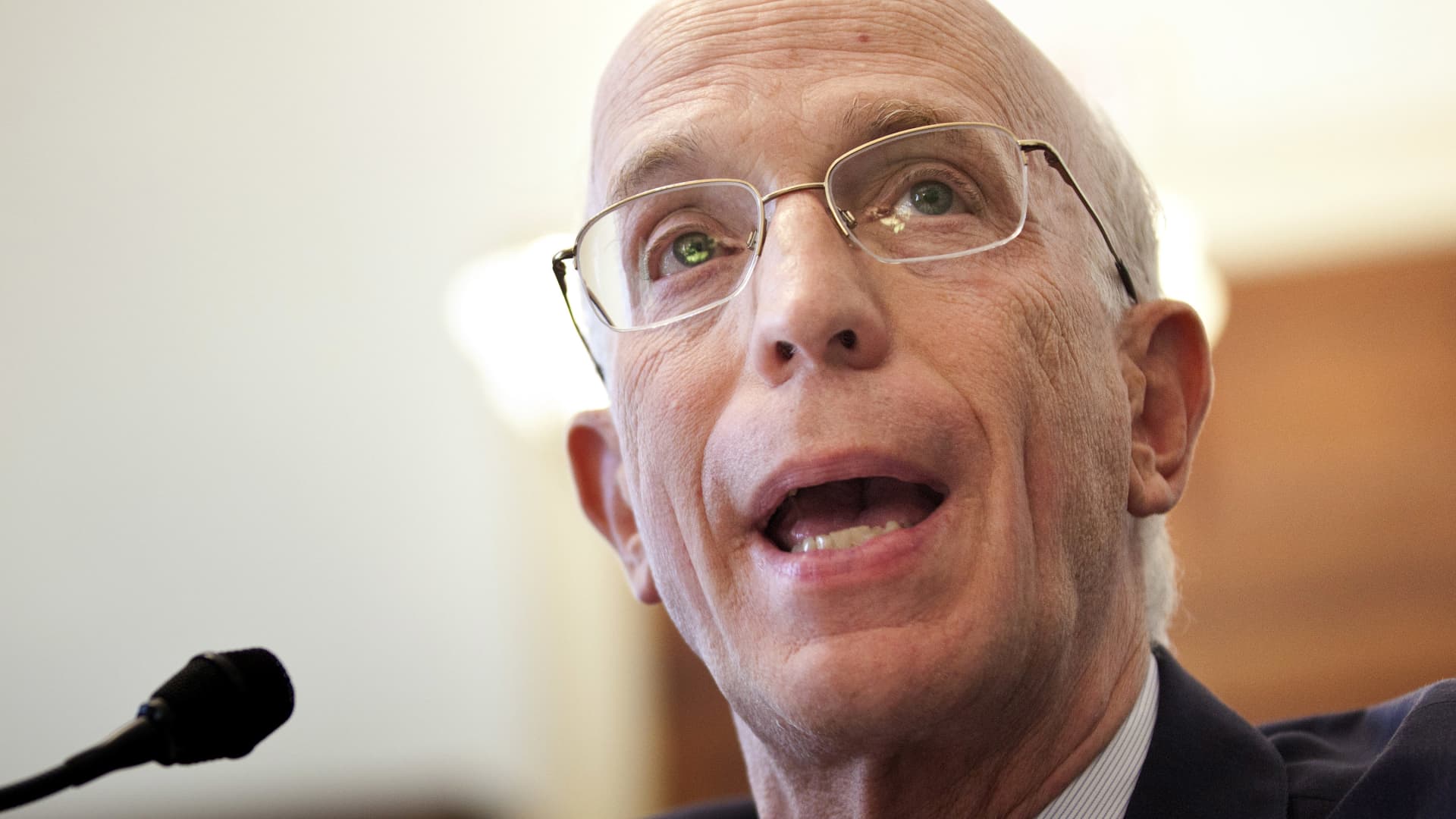Many Americans are worried that the U.S. economy is on feeble footing.
As the Federal Reserve raises interest rates to combat the highest inflation in 40 years, tipping the U.S. into a recession is becoming an increasing concern.
Still, it’s not likely that the U.S. economy will stop growing this year, former Federal Reserve vice chair Alan Blinder told CNBC’s Becky Quick during Monday’s “CNBC Special: Inflation and Your Stocks.”
More from Invest in You:
How to calculate your own personal inflation rate
Half of Americans say inflation may hurt financial goals
How to know if an adjustable rate mortgage is right
“A recession is pretty likely,” Blinder said. However, he added that he foresees any downturn coming next year, as opposed to later in 2022, and that a recession is not an absolute certainty.
“I don’t mean 89% probability, but maybe 50 to 60% probability,” he said, adding that if there is indeed a recession, he thinks it will be a mild one.
Recession watch
A recession is a period when the economy shrinks instead of grows.
After the initial shock of the coronavirus pandemic, the U.S. economy contracted due to shutdowns and mass layoffs and fell into a recession. Just a few months later, however, as vaccines rolled out and Americans could go back to work and play, the economy rapidly began to recover.
Now, however, increased inflation, the ever-present virus, supply shocks and global uncertainty from the war in Ukraine are threatening economic growth and damaging sentiment.
“If we have very slow positive growth, it will feel like a recession to a lot of people,” said Blinder. As the Federal Reserve tightens to reel in inflation, he said that slowed growth would be a good outcome overall for the soft landing the central bank is aiming for.
Threat of stagflation
Blinder also discussed so-called stagflation, which can occur when slowed growth is coupled with lower demand and a rise in unemployment — conditions that could be on the horizon in the U.S. The country last grappled with stagflation in the 1970s.
Now, however, the Federal Reserve is much better equipped to deal with stagflation than it was then, Blinder said.
“When that hit [in the 70s] central banks didn’t know how to deal with it,” he said. “I think there’s a much better understanding of it now.”
SIGN UP: Money 101 is an 8-week learning course to financial freedom, delivered weekly to your inbox. For the Spanish version Dinero 101, click here.
CHECK OUT: 74-year-old retiree is now a model: ‘You don’t have to fade into the background’ with Acorns+CNBC
Disclosure: NBCUniversal and Comcast Ventures are investors in Acorns.
